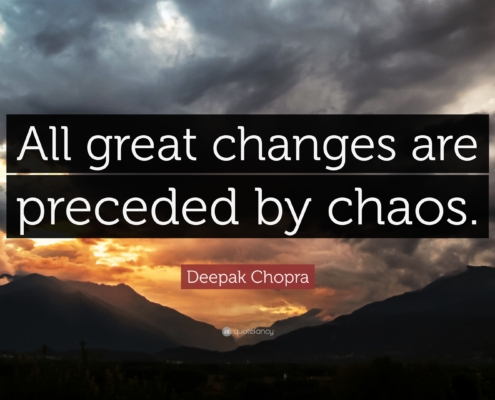
Webinar- A Trauma-Informed Approach: Three Myths Busted
UncategorizedGet back in touch with hope, creativity, and the joy that brought you to be a helper in the first place. No extra supplies needed, just a pen and paper. This workshop will introduce It StARTS With You, a partnership between Origins Training and A Creative Leap focusing on using art to support the cultivation of resilience in helping professionals. Join us for a hands-on 60 minute workshop to discover how this series can bring the joy back into your work and life.
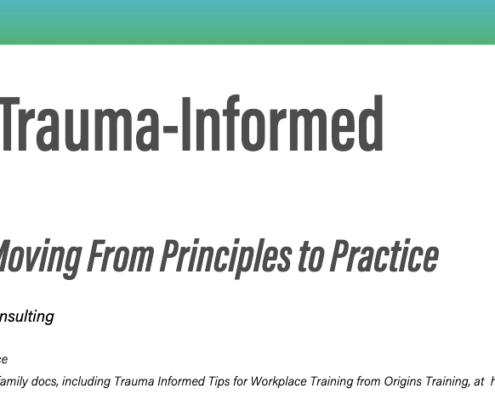
As Featured in CAFP Magazine: Moving From Principles to Practice in Healthcare
UncategorizedBy: Lori Chelius, MBA, MPH (originally published in California Family Physician Magazine Fall 2024)
As healthcare professionals, you all came to this work to support healing. It's hard work, and sometimes the reason you started this work -…

From Conflict to Connection: How Trauma-Informed Care and Relational Coordination Foster Resilient Teams
UncategorizedBy: Andi Fetzner, LPC, PsyD
In this cartoon by Liz Fosslien, we see two contrasting images that illustrate the impact of conflict. The first shows a tangled ball of yarn between two people—one on the left and one on the right. The individuals’…
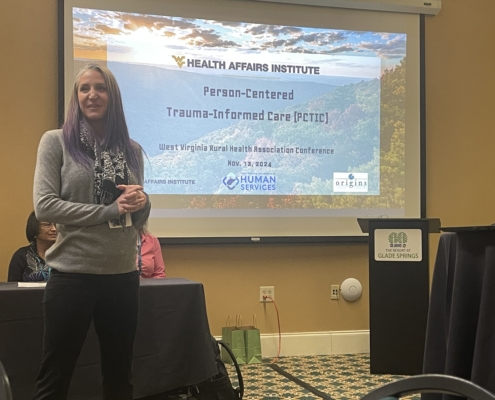
The Power of Community in Rural Health Care: A Reflection on Our Work in West Virginia
UncategorizedWritten By: Lori Chelius
Since 2021, Andi and I have had the privilege of collaborating with the West Virginia University Health Affairs Institute and the West Virginia Department of Human Services on a project that has been incredibly meaningful…
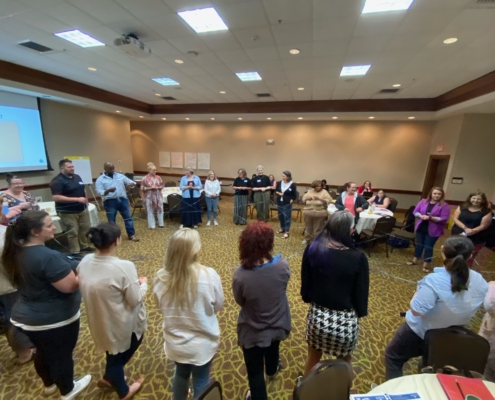
Helping the Helpers: Westbrook Health’s Approach to Trauma-Informed Leadership
UncategorizedWritten by: Andi Fetzner, LPC/PsyD
Fred McFeely Rogers (better known as Mr. Rogers) famously offered the advice during times of trouble: "Look for the helpers. You will always find people who are helping." Many times throughout my life, I…

Combining Trauma-Informed Care with DEIB Boosts Connection and Efficiency
Uncategorized
In June, we partnered with CommuniCare + OLE Health to deliver a training for Community Clinic Association of Los Angeles County to share the experience of integrating Trauma-Informed Care (TIC) and Diversity, Equity, Inclusion, and Belonging…

Healing and Hope - A Day at Folsom Prison
UncategorizedWritten by: Andi Fetzner PsyD
You may have heard the phrase “hurt people hurt people” and thought that it’s just some fluffy way for people to avoid accountability for their actions. But what if this is the foundation for doing just…
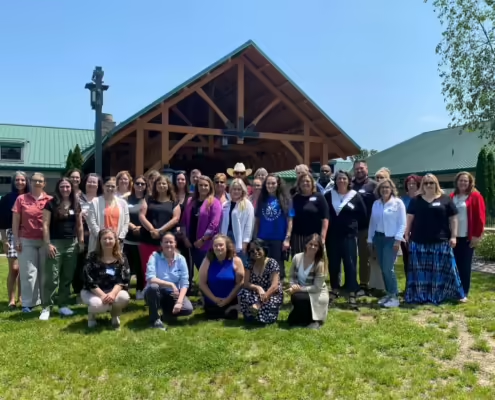
Bringing Out The Trainer In You
UncategorizedSharing Skills, Shaping Communities
Many of you have attended trainings on the ACE Study, trauma-informed principles, and resilience and have been left wanting guidance on how to put these concepts into action. That’s what our Basics, Resilience…

Beyond the Checklist: Implementing a Trauma-Informed Culture
UncategorizedDefining a trauma-informed approach and figuring out how to put it into action has been a struggle since the inception of the term. At Origins, our answer to this predicament is simple (but not always easy)--a trauma-informed approach is a culture,…

Language Matters: The Case for “Humaning”
UncategorizedThe other day I was at the gym and someone asked me what I do for work. I really love what I do, but I have to admit that I sometimes dread this question and often try to avoid it. When I tell people about the work we do at Origins to support…
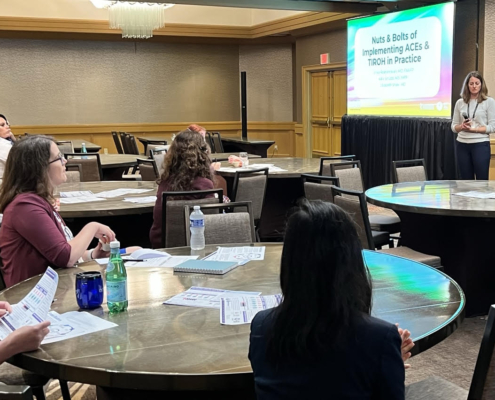
Creating Culture Change With Smiles and Laughter
Resilience ChampionSmiles and laughter. When we are hosting a virtual workshop, these are two of our favorite things. When people come back from a breakout room and we can see them smiling and laughing, we know that the people in that breakout room connected in some meaningful way.


